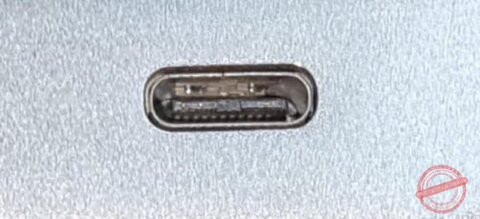This article lists the top 10 advantages of SSD over HDD. The context of the discussion is about the latest consumer-grade, high-capacity SSD versus the “traditional” 2.5-inch hard disk drives. We also intend to limit the discussion to mobile usage rather than desktops or servers, which are static. The reason is that static systems still benefit from using the traditional HDD with very high capacity, such as 20TB. By the end of 2022, the highest capacity for SSD is only up to 8TB. VectoTech Rapid 8TB External SSD Corsair MP600 PRO NH 8TB PCIe Gen4 x4 NVM… SABRENT 8TB Rocket 4 Plus NVMe 4.0 Gen4 P…
1. Size and Weight
The solid-state drive is much smaller than the smallest 2.5″ hard disk. They can be used with a keychain or hooked to your belt so that you can bring around and take out and use them conveniently. Size and weight matter a lot, especially when we carry many gadgets daily, such as laptops or tablets, mobile phones, portable batteries, earbuds with charging cases, GaN chargers, USB cables, protective cases, etc. It is known that protective cases for tablets like iPad Pro can weigh between 300 and 400 grams. Every ounce or gram counts. On a side note, unlike the earlier SSD, which comes in a standard 2.5″ size to match traditional mobile HDD size. The newer M.2 NVMe SSD is a PCB that makes notebooks ultra-thin and lightweight.
2. Ruggedness
Since the solid-state drive does not have moving parts like the traditional spinning hard disk wheels, it is inherently more reliable because it does not get physically damaged easily. Furthermore, it is easy to design a casing that can pass the drop test for a solid-state drive due to the lightweight and lack of moving parts that may misalign due to impact. For ruggedness, we would look for shock (drop), water resistant and dust proof. Water and dust resistance can be based on the IP-rating system, while the drop test is usually based on MIL-STD 810.
3. Transfer Speed
The advantages of SSD vs HDD are most obvious regarding data transfer speed in either direction, access speed, and latency. The external 2.5-inch drive typically uses a 5,400 rpm HDD with up to 150MB/s of data transfer speed via a USB 3.1 interface. We have yet to find any external 2.5″ drive with 7,200 rpm and transfer speed higher than 150MB/s. We do not consider 3.5-inch HDD for comparison due to the size and weight. Even the ruggedised edition of the WD Black P10 game drive uses 5,400 rpm.
External solid-state drives have transfer speeds as high as 2,000 MB/s (as of Dec 2022), such as the SanDisk 4TB SSD. To reach the maximum speed of 2,000 MB/s, you will need the other device a) to support similar USB 3.2 Gen 2×2 Superspeed Plus with a USB Type C port and; b) an equally fast internal SSD with the same read/write speed.
Buy SanDisk 4TB Extreme PRO Portable SSD
The important point is that USB 3.2 Gen 2×2 is not fully compatible with Thunderbolt 3 or 4 (in short, call this TB) found on the latest laptops. TB3 and TB4 are compatible with USB 3.2 Gen 2×1, a single lane with 10 Gbps or a maximum of 1,212 MB/s transfer speed.
Are you confused about the difference between Thunderbolt, USB 3.2 standards and USB Type?
USB standards, such as USB 3.2 and USB4 etc, are technology standards maintained by the USB Implementers Forum. The latest USB 3.2 and USB 4 use the new USB-Type C port, while the older Type A and micro-USB has been gradually phased out in the past few years.
Thunderbolt™ is an Intel-developed connectivity standard that uses the same oval-shaped USB Type-C Connector port.
Both standards use the same USB Type C connector below, but the backend technology differs – unless your device or computer explicitly states that the port supports both USB 4 and Thunderbolt 4.

Therefore, the term “USB Type C” only refers to the type of port for matching cables and does not provide any information about the transfer speeds. Read also: USB Power Delivery and Data Transfer Standards
4. Power Consumption
The SSD will consume significantly less power than the HDD due to its high spinning rate of up to 5,400 rpm. Even when the computer is idle, the HDD is always spinning, albeit at a lower speed, which still consumes power. As such, SSD helps to prolong the battery life of your laptop or mobile devices by consuming less energy. Depending on the usage rate, the power consumption of SSD is typically less than half of the HDDs. This advantage of SSD over HDD is often overlooked and taken for granted when we are getting so used to the new drive.
5. Temperature
The recommended operating temperature of HDD and SSD are about the same at up to 50 deg C in most cases, though some sites claim SSD could withstand up to 70 degC. However, both SSD and HDD could face similar potential degradation or malfunction issues if they are subjected to high temperatures.
6. Noise
Another clear advantage of SSD over HDD is that the SSD is completely silent without moving parts. We could always hear the spinning of the traditional HDD.
7. Reliability
The HDD’s reliability depends on the quality of its moving parts, which has a higher chance of failure when compared to the static, solid-state drive. However, this does not mean that the solid-state drive is safe from reliability issues. Any motherboard, graphics card or RAM these electronics products always have potential quality issues depending on the manufacturing quality control. This is why a warranty is important in case of failure due to workmanship or defective components.
8. Durability
Assuming the device has no quality issues and can achieve a full life, we would expect the HDD to last 3 to 5 years, while SSD could last between 5 to 10 years or longer, depending on the type of NAND.
9. Cost
Since there are so many clear advantages of SSD over HDD, the price of an SSD will always be higher than the HDD of the same capacity. However, the price is dropping quickly. Most laptops have switched to SSD since 2020, and prices of most users are satisfied with 4TB SSD under $500. Bearing in mind that the hard disk is a critical piece of hardware which holds all your data. We recommend not buying cheap but from a reputable brand such as Samsung.
Best 4TB Portable SSD External Drives






